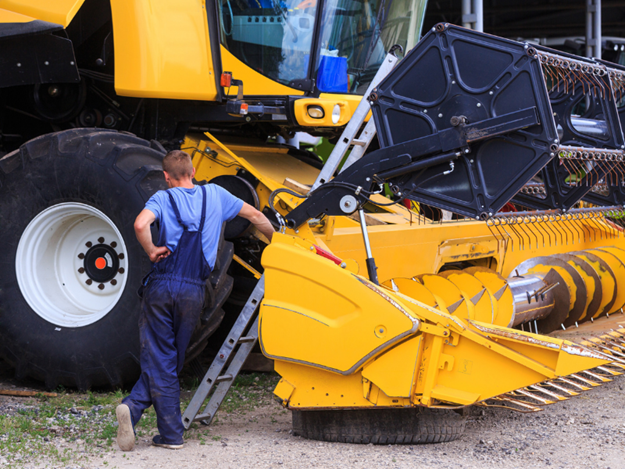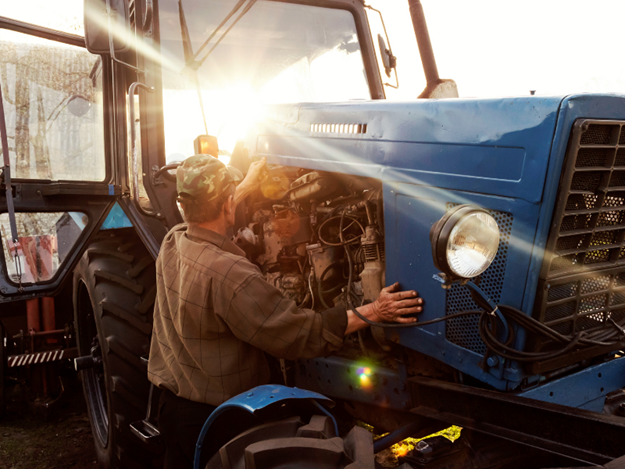Farmers wanting to hire third-party machinery repairers are facing major challenges, two government-commissioned reports have found, with one calling for legislative change
 |
| The Australian government’s Productivity Commission has issued draft recommendations to protect consumers’ right to repair their own machinery – Courtesy of AdobeStock |
Australian consumers’ right to repair their own farm machinery, among other technologies, is under fire, according to a new report from the Australian government’s Productivity Commission (PC).
A preliminary draft report released last month outlines the growing number of barriers facing consumers and their right to repair products and equipment.
The commission also issued several draft recommendations, including calling on the Australian Competition and Consumer Commission (ACCC) to establish benchmarks for the durability of products, among other proposals and amendments to current legislation.
It must be noted, the PC won’t formalise those recommendations until the submission of the final report to parliament in October 2021, following further consultations and public hearings.
PC Commissioner Julie Abramson says farm equipment and machinery accounted for a significant portion of right to repair claims the Commission has so far considered.
“There appears to be particular problems in markets for agricultural machinery… and we are seeking further information on this,” says Abramson.
FARMERS BEAR THE BRUNT
In relation to agricultural machinery, the commission outlined a growing number of barriers facing consumers, including limited competition in repair markets for farm equipment and issues with warranties, including them becoming void should consumers use an unauthorised repairer.
In Australia, the right to repair refers to the consumer’s ability to have their products repaired at a competitive price and using a repairer of their choice.
The term is governed under several policies, including consumer and competition law, intellectual property protections, production design and labelling standards and environmental and resource management.
Several inquiry participants highlighted concerns relating to original equipment manufacturers (OEM), who are using their position in the repairs market to impede independent repairers from accessing parts, information and equipment.
The commission’s analysis determined that current restrictions on third-party repairers by OEMs could be the largest cause of harm to farmers given the ‘reasonably large’ repair and maintenance market – the estimated value was $720 million in 2018 – and the incentives by OEMs in the market to increase repair prices without consistent market competitiveness.
Impediments in the agricultural machinery space were especially common in regard to tools and equipment, where access to diagnostic software tools was outlined as a primary barrier.
It was confirmed by the National Farmers Federation (NFF) that most agricultural machinery OEMs do not make diagnostic software available to anyone apart from their authorised technicians.
As a result, the commission recommended the Australian government re-evaluate the Repair Information Sharing Scheme, which is designed to improved access to repair information following three years of operation.
The draft report, however, did call for further evidence on third-party repair supplies and information given the current barriers for independent repairers were “patchy and largely anecdotal”; and referenced the infrequently-used Part IV of the Competition and Consumer Act 2010, which addresses anti-competitive behaviour in repair markets.
Canegrowers Herbert River manager Frank Scardamaglia, who was one of many to produce an initial submission for the PC’s draft report, says farmers are becoming concerned about their limited access to repair agents outside of dealerships.
“Manufacturers have only provided dealerships with the appropriate software to diagnose faults or perform software upgrades on the machine,” he says.
“This creates a lack of competition as independent repairers are unable to access software and drives up the cost of repairs and call outs. The hourly rate charged at dealerships for repairs can range from $130 to $160 per hour, including travel time.
“Farmers are operating businesses with high operational costs and machinery costs are in the top three expenses. We would like to see a more even playing field to allow farmers to have a broader range of repair agents available and create competition.”
 |
| The ACCC says farm machineryshould be included in ‘right to repair’ schemes – Courtesy AdobeStock |
LEGISLATIVE CHANGE
The draft report also recommended that the government amend the Competition and Consumer Regulations Act 2010 to require manufacturers to update their warranties with further information.
Specifically, the proposed change would include text, placed “in a prominent position”, stating that entitlements to consumer guarantees do not require consumers to use authorised repair services or spare parts.
In some instances, OEMs’ state warranties will become void should consumers not use an authorised repairer; a ploy to discourage them from using independent or third-party repairers.
Again, participants of the review indicated concerns of voiding warranty on farm machinery further restricted market competitiveness within the repair market, restricting consumers from seeking independent repairs.
Under the amendment to the law, warranties would be made clearer, ensuring that even if consumers use intendent repairers, the legal rights of the warranty will not be voided. A ban on voiding warranties for consumers who don’t use OEM repairers is also being considered by the commission.
The findings of the PC’s draft report follow similar findings made by the ACCC earlier in the year in the competition regulator’s agricultural machinery market study, which called for more independent competition in repair markets and changes to warranties in the agricultural machinery space.
The ACCC’s review recommended that agricultural machinery should be considered for future inclusion in the motor vehicle service and repair information sharing scheme, notably in relation to how the scheme grants access to software and technical information.
It also recommends that agricultural machinery to be included in any broader ‘right to repair’ scheme introduced in Australia, given future legislation could include requirements for OEMs to grant access to software, have a sufficient supply of parts available in Australia and provide consumers with information about how the duration of software is supported.
“Competition in after-sales markets would be improved if independent repairers had access to software, tools and parts on fair and reasonable commercial terms. This is an important issue that runs across a number of industries, both in Australia and overseas,” says ACCC deputy chair, Mick Keogh.
However, the ACCC’s review and recommendation does not specifically call upon the government to act or make any legislative changes in order to compel OEMs into facilitating consumers’ right to repair.
The Productivity Commission is set to hand down its final report to the federal government by October 29.
Read More: PTO SAFETY AND MAINTENANCE TIPS
Read More: CNH BUYS RAVEN INDUSTRIES

